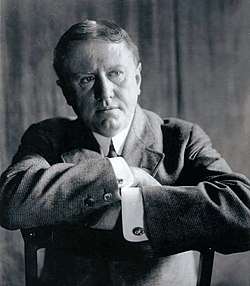Our website is made possible by displaying online advertisements to our visitors.
Please consider supporting us by disabling your ad blocker.
Banana republic

In political science, the term banana republic describes a politically and economically unstable country with an economy dependent upon the export of natural resources. In 1904, American author O. Henry coined the term[1][2] to describe Guatemala and Honduras under economic exploitation by U.S. corporations, such as the United Fruit Company (now Chiquita). Typically, a banana republic has a society of extremely stratified social classes, usually a large impoverished working class and a ruling class plutocracy, composed of the business, political, and military elites.[3] The ruling class controls the primary sector of the economy by way of exploitation of labour.[4] Therefore, the term banana republic is a pejorative descriptor for a servile oligarchy that abets and supports, for kickbacks, the exploitation of large-scale plantation agriculture, especially banana cultivation.[4]
A banana republic is a country with an economy of state capitalism, where the country is operated as a private commercial enterprise for the exclusive profit of the ruling class. Such exploitation is enabled by collusion between the state and favoured economic monopolies, in which the profit, derived from the private exploitation of public lands, is private property, while the debts incurred thereby are the financial responsibility of the public treasury. Such an imbalanced economy remains limited by the uneven economic development of town and country and usually reduces the national currency into devalued banknotes (paper money), thereby rendering the country ineligible for international development credit.[5]
- ^ O. Henry (1904). Cabbages and Kings. New York City: Doubleday, Page & Company. pp. 147, 328. OL 6948347M.
- ^ Milian, Claudia (2013-02-01). "Chapter Four: Disorienting Latinities". Latining America: Black-Brown Passages and the Coloring of Latino/a Studies (PDF). Athens, Georgia: University of Georgia Press. p. 124. doi:10.2307/j.ctt46n76g.8. ISBN 978-0-8203-5302-9. JSTOR j.ctt46n76g.8. Retrieved 2024-01-16.
- ^ Richard Alan White (1984). The Morass. United States Intervention in Central America. New York: Harper & Row. ISBN 978-0-06091145-4. Retrieved 2016-05-14.
- ^ a b "Big-business Greed Killing the Banana (p. A19)". The Independent. 24 May 2008. Archived from the original on 17 January 2013. Retrieved 24 June 2012 – via The New Zealand Herald.
- ^ Christopher Hitchens (9 October 2008). "America the Banana Republic". Vanity Fair. Archived from the original on 17 June 2012. Retrieved 24 June 2012.
Previous Page Next Page


